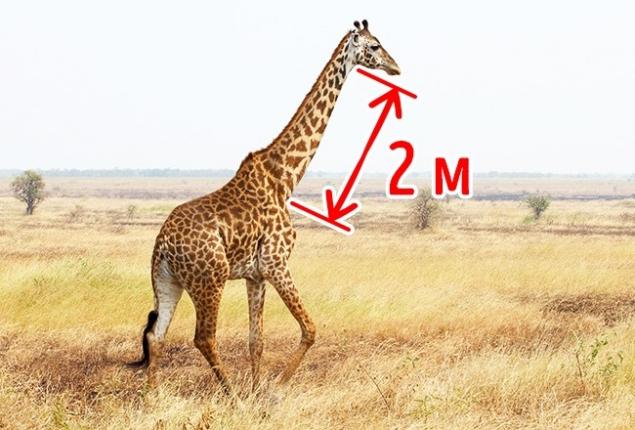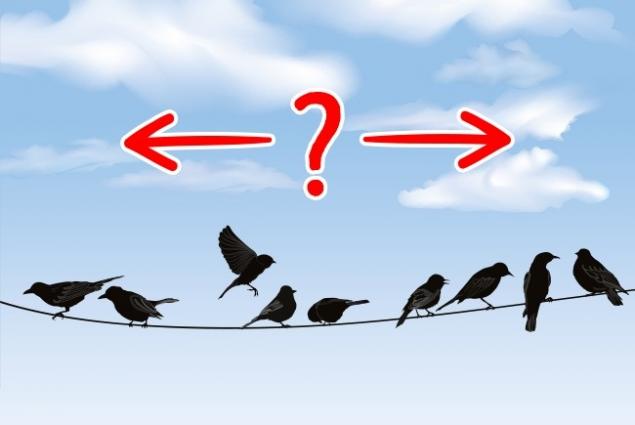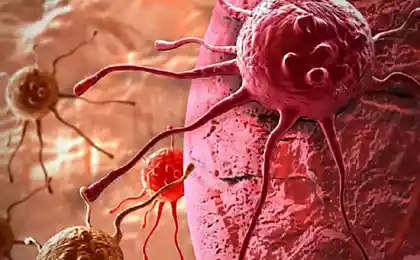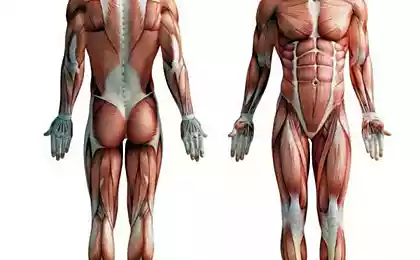787
18 questions that science still has not found answers
Thirty four million eight hundred eighty eight thousand eight hundred ninety
In this fast-paced world it seems that people have found answers to all questions. We are accustomed to the fact that if something we do not know, then science knows everything.
But a Website has collected the questions, the answers that science can give for many years.
18. Why the giraffe has such a long neck?
Of course, a very sensible answer that the giraffe neck so needed to get high growing food. But scientists have been reluctant to accept this version as the only correct one. So the question is still open, and the official answer is no.
17. How many years can people live? As strange as it may sound, but scientists and doctors called the old age disease. It is no longer taken for granted stage of life. And in this case, we should be more concerned not about what will be duration of life, and about how to stay healthy.
16. Why do moths flock to the light?
This behavior of insects is one of the most familiar. And hardly anyone of us thought that this phenomenon is no explanation. Despite the fact that from the light moths die, they are still flying at him. Some explained this by the fact that the insects fly at a certain angle to the light as their stimulus. But others do not agree with them, because since the emergence of the fire and all the moths would have died long ago. So true cause no one can say.
15. Why do cats purr? Yes, even such simple, at first glance, the phenomenon of purring cats, scientists can not explain. Animals produce these sounds in very different moments: when they are fed when they are hungry, when they're scared. One theory suggests that this promotes healing of bones and tendons. However, this option absolutely does not answer the question about why cats purr in a variety of situations.
14. Why yawning is contagious?
We start to yawn when we see another person yawning. Scientists have found that this way is manifested the ability to empathize and form emotional connections with others. But people suffering from schizophrenia and autism, will not respond to the yawn of another person. But scientists can't figure out why a yawn is set to such a relationship.
13. As part of the body "understand" that they no longer need to grow? At the moment it is known that cell growth depends on a signal which stops the growth of protein. But scientists still unknown, what is that signal as it is generated, what channels are and what processes are affected.
12. How do birds know where to fly?
We in early childhood are wondering about how migratory birds know where to fly for the winter and then where to go. The only assumption that makes science on this account is the influence of Earth's magnetic field. At the moment this is the only one, but he was not accepted as the correct answer to this question.
11. Why placebos always work? As you know, a placebo is a substance that has no medicinal properties. By consuming all based on the fact that a person sincerely believes in the therapeutic effect of the pills. Scientists are still arguing about the placebo and how much is reasonable to take the medicine.
10. What is at the bottom of the ocean?
This question may seem strange, but it is the place to be. Because only 5% of the ocean bottom is studied. What is the other 95 %, nobody knows. And, it seems, scientists are not in a hurry to know: according to them, is much easier and faster to get to the moon than to descend to the deepest part of the ocean.
9. Is it possible to travel in time? For different reasons, but all we ever thought about the fact that it would be nice to have a time machine. But it seemed to us that this is impossible. From a purely technical point of view, science tells us that traveling in future is possible. Only that you need to disperse of a person to incredibly high speed. But time travel is still impossible.
8. Why are most people right — handed?
It is known that 9 out of 10 people are right-handed. But for as much as 160 years no one can figure out why the majority of people the dominant hand — the right one.
7. Why do we yawn? Yes, many say that man, like other vertebrates, yawning for lack of oxygen in the body. But this version has not been approved officially. Therefore, scientists are unable to explain this phenomenon to the end.
6. Why have dreams?
It would seem that only the appearance of dreams must be explained. But there is no single clear answer. Some say that dreams may be unfulfilled desires, while others believe that dreams are just nerve impulses.
5. Why people used to sleep? Since ancient times, people began to ask this question. A third of his life we spend in sleep, but no one has been able to explain why this is happening. There are two assumptions: sleep is necessary for memory or learning abilities.
4. What is the universe?
There's supposed to be easy, because everything is made of atoms. But not so, because we are talking about a Universe where atoms are only 5% of the total composition. About the other 95% do not know. Therefore, this part of the Universe called "dark matter".
3. What is a black hole? The most unusual components of our Universe is also not understood. The theory of relativity and quantum mechanics come to a standstill at the question of the composition of a black hole. So no one knows when or if that studied this issue and whether there will be an official response to it.
2. Where did gravity?
Science asked that question for many years. And it is worth noting that this is one of the questions the answer to which science wants to find the most. But it is clear only one: the eternal struggle of classical physics and quantum mechanics.
1. Are there any other life in the Universe? Most likely, Yes. At the moment scientists saw signs that would engender life on other planets. Research that begins now and will continue in the coming decades, can be very exciting. It is not excluded that at least one of 60 billion planets in the Universe will be discovered life.
Photos on the preview depositphotos, depositphotos
via ru.depositphotos.com/36646957/stock-photo-hand-writing-on-paper.html?utm_source=Adme&utm_medium=freesub&utm_campaign=RU-brand
In this fast-paced world it seems that people have found answers to all questions. We are accustomed to the fact that if something we do not know, then science knows everything.
But a Website has collected the questions, the answers that science can give for many years.
18. Why the giraffe has such a long neck?

Of course, a very sensible answer that the giraffe neck so needed to get high growing food. But scientists have been reluctant to accept this version as the only correct one. So the question is still open, and the official answer is no.
17. How many years can people live? As strange as it may sound, but scientists and doctors called the old age disease. It is no longer taken for granted stage of life. And in this case, we should be more concerned not about what will be duration of life, and about how to stay healthy.
16. Why do moths flock to the light?

This behavior of insects is one of the most familiar. And hardly anyone of us thought that this phenomenon is no explanation. Despite the fact that from the light moths die, they are still flying at him. Some explained this by the fact that the insects fly at a certain angle to the light as their stimulus. But others do not agree with them, because since the emergence of the fire and all the moths would have died long ago. So true cause no one can say.
15. Why do cats purr? Yes, even such simple, at first glance, the phenomenon of purring cats, scientists can not explain. Animals produce these sounds in very different moments: when they are fed when they are hungry, when they're scared. One theory suggests that this promotes healing of bones and tendons. However, this option absolutely does not answer the question about why cats purr in a variety of situations.
14. Why yawning is contagious?

We start to yawn when we see another person yawning. Scientists have found that this way is manifested the ability to empathize and form emotional connections with others. But people suffering from schizophrenia and autism, will not respond to the yawn of another person. But scientists can't figure out why a yawn is set to such a relationship.
13. As part of the body "understand" that they no longer need to grow? At the moment it is known that cell growth depends on a signal which stops the growth of protein. But scientists still unknown, what is that signal as it is generated, what channels are and what processes are affected.
12. How do birds know where to fly?

We in early childhood are wondering about how migratory birds know where to fly for the winter and then where to go. The only assumption that makes science on this account is the influence of Earth's magnetic field. At the moment this is the only one, but he was not accepted as the correct answer to this question.
11. Why placebos always work? As you know, a placebo is a substance that has no medicinal properties. By consuming all based on the fact that a person sincerely believes in the therapeutic effect of the pills. Scientists are still arguing about the placebo and how much is reasonable to take the medicine.
10. What is at the bottom of the ocean?

This question may seem strange, but it is the place to be. Because only 5% of the ocean bottom is studied. What is the other 95 %, nobody knows. And, it seems, scientists are not in a hurry to know: according to them, is much easier and faster to get to the moon than to descend to the deepest part of the ocean.
9. Is it possible to travel in time? For different reasons, but all we ever thought about the fact that it would be nice to have a time machine. But it seemed to us that this is impossible. From a purely technical point of view, science tells us that traveling in future is possible. Only that you need to disperse of a person to incredibly high speed. But time travel is still impossible.
8. Why are most people right — handed?

It is known that 9 out of 10 people are right-handed. But for as much as 160 years no one can figure out why the majority of people the dominant hand — the right one.
7. Why do we yawn? Yes, many say that man, like other vertebrates, yawning for lack of oxygen in the body. But this version has not been approved officially. Therefore, scientists are unable to explain this phenomenon to the end.
6. Why have dreams?

It would seem that only the appearance of dreams must be explained. But there is no single clear answer. Some say that dreams may be unfulfilled desires, while others believe that dreams are just nerve impulses.
5. Why people used to sleep? Since ancient times, people began to ask this question. A third of his life we spend in sleep, but no one has been able to explain why this is happening. There are two assumptions: sleep is necessary for memory or learning abilities.
4. What is the universe?

There's supposed to be easy, because everything is made of atoms. But not so, because we are talking about a Universe where atoms are only 5% of the total composition. About the other 95% do not know. Therefore, this part of the Universe called "dark matter".
3. What is a black hole? The most unusual components of our Universe is also not understood. The theory of relativity and quantum mechanics come to a standstill at the question of the composition of a black hole. So no one knows when or if that studied this issue and whether there will be an official response to it.
2. Where did gravity?

Science asked that question for many years. And it is worth noting that this is one of the questions the answer to which science wants to find the most. But it is clear only one: the eternal struggle of classical physics and quantum mechanics.
1. Are there any other life in the Universe? Most likely, Yes. At the moment scientists saw signs that would engender life on other planets. Research that begins now and will continue in the coming decades, can be very exciting. It is not excluded that at least one of 60 billion planets in the Universe will be discovered life.
Photos on the preview depositphotos, depositphotos
via ru.depositphotos.com/36646957/stock-photo-hand-writing-on-paper.html?utm_source=Adme&utm_medium=freesub&utm_campaign=RU-brand
10 phrases that will tell the source is not what you wanted
9 richest women in the world, the condition of which you would never have guessed























